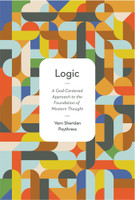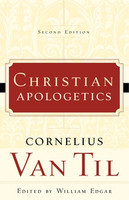Unveiling the often-overlooked significance of Cornelius Van Til in the realm of Reformed ethics, this work draws light upon his unique moral philosophy. Grounded in the covenantal epistemology and metaphysics typically employed for apologetics, Van Til masterfully harmonized his insights with those of Geerhardus Vos’ biblical theology.
In contrast to many ethicists who concentrate on formulating and applying principles, Van Til focused his attention on the Christian’s greatest good (summum bonum), which is God himself. His dedication to exploring the ethical implications of this divine starting point produced a standard of God-centeredness in moral philosophy that remains distinctive among Reformed thinkers, setting him apart even from his students, such as Greg Bahnsen, John Frame, and Meredith Kline, who have also contributed substantially to Reformed ethics.
Amidst the rise of moral relativism in the mid-twentieth century, Van Til’s stance was steadfast. This book, which includes a new critical edition of Van Til’s Christian Theistic Ethics, reveals how, against the backdrop of this challenging era, he not only successfully defended Christian ethical foundations but also holistically integrated ethics with the rest of Christian theology, reinforcing its relevance and import.
Endorsements
This is a unique book. And it is uniquely important. Few people have elaborated on Cornelius Van Til’s approach to ethics. And yet it is an indispensable part of his output. Using Alasdair MacIntyre’s insights, Hatch shows how ethics has needed to move beyond the failures of the Enlightenment mindset and become more self-consciously authentic; this parallels Van Til’s entire outlook. Van Til centers his reflections on the summum bonum, which is the glory of God. Hatch comments on all the major players in this field. Most of all, he centers ethics on biblical essentials. This unique and important book should be read by every thoughtful Christian.
William Edgar
Professor Emeritus of Apologetics
Westminster Theological Seminary
For understandable reasons, Cornelius Van Til is best known for his contributions to Christian epistemology and apologetics. In contrast, his writings on Christian ethics, and especially metaethics, have been largely overlooked and underutilized, even by those Reformed ethicists who studied under him and acknowledged his influence. This is a great shame because Van Til developed some profound insights on how Christian moral philosophy should be shaped by the distinctive Reformed doctrines of God and man. Scott Hatch has done us a tremendous service by retrieving and expounding these insights for a new generation of Christian thinkers. The two appendices, which document the development of Van Til’s ethics syllabus over the early decades of his career, add further value to the volume. While I might not agree with every jot and tittle, this book is in a class of its own as a systematic study of Van Til’s approach to Christian ethics, and it deserves to be widely read.
James N. Anderson
Carl W. McMurray Professor of Theology and Philosophy
Reformed Theological Seminary, Charlotte






